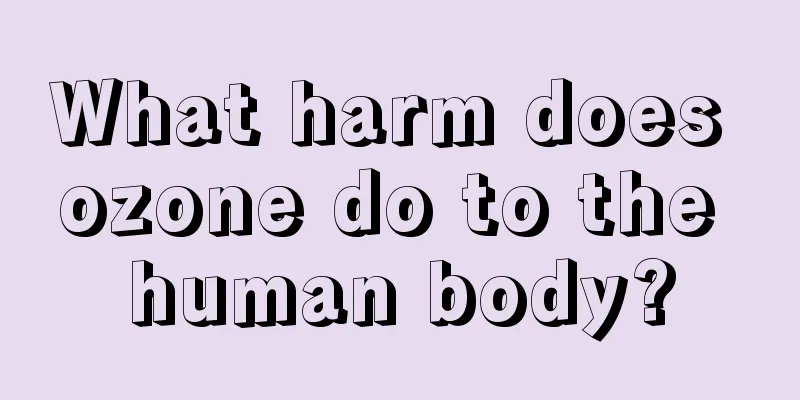What harm does ozone do to the human body?

|
Ozone is an extremely important substance. It exists in large quantities in the outer space of the earth. It can filter ultraviolet particles and prevent them from harming creatures on the earth. Therefore, most people have a good impression of ozone. In fact, ozone itself is harmful to the human body and is a substance that cannot be touched. Let’s take a look at the harm that ozone does to the human body. I hope everyone can understand it. Ozone sterilization. The bactericidal ability of ozone is not affected by changes in pH and ammonia. Its bactericidal ability is 600-3000 times greater than that of chlorine. Its sterilization and disinfection effects are almost instantaneous. When the ozone concentration in water is 0.3-2 mg/L, bacteria can be killed within 0.5-1 min. The dosage of ozone water required to achieve the same sterilization effect (such as 99% killing rate of E. coli) is only 0.0048% of chlorine.It should be noted that although ozone is a strong oxidant, its oxidizing ability is selective. Substances that are easily oxidized, such as ethanol, are not easily reacted with ozone.
Low concentration of ozone can disinfect, but excessive ozone is an invisible killer! It strongly irritates the human respiratory tract, causing sore throat, chest tightness and cough, and triggering bronchitis and emphysema; Ozone can cause nerve poisoning, dizziness, headache, decreased vision, and memory loss; Ozone can damage the vitamin E in human skin, causing wrinkles and dark spots on the skin. Ozone can also damage the body's immune function, induce lymphocyte chromosomal changes, accelerate aging, and cause pregnant women to give birth to deformed babies; The ozone and organic waste gas produced by the heat of copier toner is a strong carcinogen that can cause various cancers and cardiovascular diseases. Therefore, the hazards caused by ozone and organic waste gas must be taken seriously.When the ozone concentration in the air is at 0.012ppm, which is also the typical level in many cities, it can cause itchy skin, irritation of the eyes, nasopharynx and respiratory tract, affected lung function, and cause symptoms such as coughing, shortness of breath and chest pain; when the ozone level in the air increases to 0.05ppm, the number of hospitalizations increases by an average of 7% to 10%. The reason is that, as a strong oxidant, ozone can react with almost any biological tissue. When ozone is inhaled into the respiratory tract, it reacts quickly with the cells, fluids and tissues in the respiratory tract, causing weakened lung function and tissue damage. The harmful effects of ozone are even more obvious for those suffering from asthma, emphysema and chronic bronchitis. |
<<: Can ozone remove formaldehyde?
>>: What symptoms does a cold back belong to
Recommend
How to effectively prevent lung cancer in daily life? Pay attention to these to keep you away from the risk of lung cancer
How can we effectively prevent the occurrence of ...
How long can you live after liver cancer surgery?
How long you can live after liver cancer surgery ...
What is the best medicine for small cell lung cancer
Small cell lung cancer is a type of cancer. Now m...
Symptoms of lung cancer metastases to lymph nodes
What are the symptoms of lung cancer metastasis t...
What are the nursing methods for lung cancer? Using 3 methods to care for lung cancer patients is the most reasonable
People of all ages are likely to get lung cancer,...
What should we pay attention to in lumbar MRI
Lumbar magnetic resonance imaging is actually a m...
Is the moxibustion box useful?
The moxibustion box is a relatively common Chines...
How to remove scale
In life, we often encounter a problem that there ...
Signs of high mental stress
Too much mental stress can lead to some other sym...
What are the effects of Huang's Shengmai Drink
Huangqi Shengmai Drink is mainly composed of the ...
Why do we get fat
In life, we are bound to encounter many obese peo...
Irregular menstruation is usually the first early symptom of cervical cancer
The early symptoms of cervical cancer are usually...
What is an enema? Correct enema operation
Enema is a way of delivering medication into the ...
What are the causes of thyroid cancer? What are the treatments for thyroid cancer?
Thyroid cancer is a malignant tumor that originat...
How to treat a cyst under the tongue
Cysts can occur in many parts of our body, and su...









